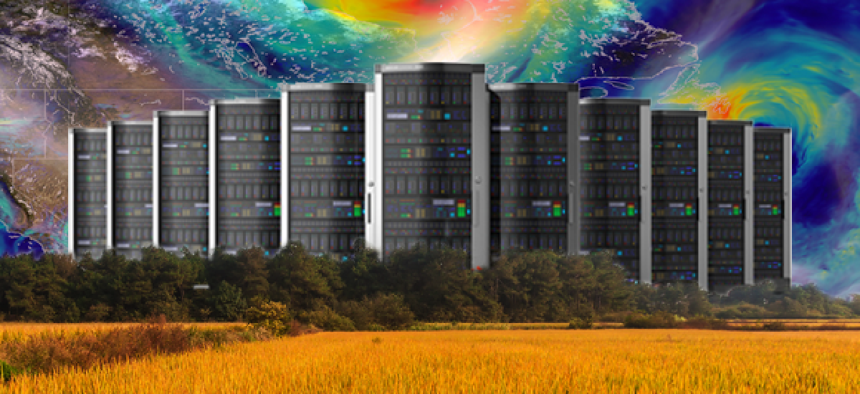Tech resources pledged to support Climate Data Initiative


Connecting state and local government leaders
In support of White House Climate Data Initiative, IBM, Microsoft, Amazon, Esri and others are donating computing resources to support research into strengthening the global food system in a changing climate.
Several tech giants are among the public and private organizations committing resources to climate change researchers working to strengthen and secure the global food system.
In support of the White House’s updated Climate Data Initiative, IBM announced it will give scientists free access to dedicated virtual supercomputing via the company’s World Community Grid platform. Similarly, Microsoft Azure for Research program will grant 12 months of free cloud computing, and AWS will award grants of free access to supercomputing resources through Amazon EC2 Spot Instances. These vendors, along with other public and private sector participants, hope to leverage open government data and build tools that will make the United States and global food systems more resilient against the impacts of climate change.
“Through his Climate Data Initiative, President Obama is calling for all hands on deck to unleash data and technology in ways that will make businesses and communities more resilient to climate change,” said John P. Holdren, President Obama’s science advisor. “The commitments being announced today answer that call by empowering the U.S. and global agricultural sectors with the tools and information needed to keep food systems strong and secure in a changing climate.”
IBM is offering scientists access to up to 100,000 years of computing time, at a value of $60 million, on its World Community Grid, the company said in its announcement. IBM’s World Community Grid provides computing power to scientists by harnessing and redistributing the unused cycle time of volunteers' computers and mobile devices. The combined power contributed by hundreds of thousands of volunteers has created one of the fastest virtual supercomputers on the planet, IBM said. Through the contributions of over 650,000 individuals and 460 organizations, World Community Grid has supported 22 research projects to date, including searches for more effective treatments for cancer, HIV/AIDS and neglected tropical diseases.
The Microsoft Azure for Research program will grant 12 months of free cloud computing resources to 20 awardees selected from proposals submitted by Sept. 15, 2014. Each award provides up to 180,000 hours of cloud computing time and 20 terabytes of cloud storage to be used for the project.
Additionally, Microsoft and Department of Agriculture will co-host a series of workshops, webinars and an app-athon aimed at demonstrating the value of open-data and data-driven tools to boost climate preparedness and resilience in the agricultural sector. They will also jointly launch a climate-change-focused Innovation Challenge to inspire the development of new tools and services that harness data available via data.gov, as well as an initial collection of USDA datasets that will be made available through Microsoft’s Azure Marketplace.
Amazon Web Services is offering the scalable computing resources of the AWS Cloud to researchers so that they can quickly analyze climate data and increase their understanding of climate change. In early September, AWS will award grants in excess of 50 million core hours of free access to supercomputing resources running on the Amazon Elastic Compute Cloud (EC2).
Esri is launching a new campaign that will use geography to better visualize, understand and improve global food systems. Esri will work to unlock authoritative data from public and private partners as live data feeds and to establish an ArcGIS-based collaborative virtual laboratory that lets scientists and policy makers create and explore spatial data.
"Massive computer power is as essential to modern-day scientific research as test tubes and telescopes," said Stanley S. Litow, IBM vice president, corporate citizenship and corporate affairs and president, IBM International Foundation. "But due to scarce funding for research, pioneering scientists often don't have access to supercomputers vast enough to meet their research objectives."




